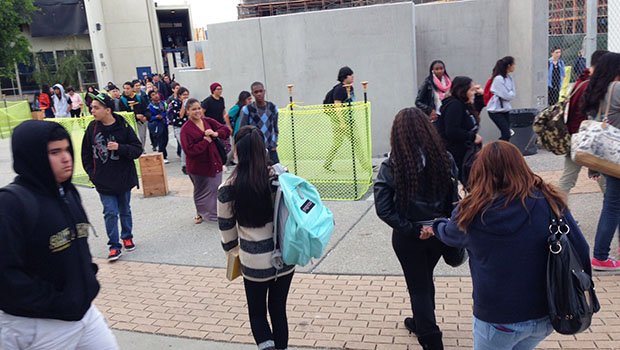Class rebalancing causes adjustment to master schedule
Samo administration extended the cut off period for dropping honors and Advanced Placement (AP) classes in order to give parents sufficient time to receive report cards in the mail. This movement resulted in the rebalancing of students in some classes.Principal Eva Mayoral sent out a letter to the students whose schedules were going to be adjusted, which explained that the school needed to give students the option of switching into college preparatory classes. Mayoral said the school changed schedules in order to avoid locking students into failing grades.“If at [the end of the first grading period] students see they cannot reasonably meet the expectations of these classes, we need to be able to offer them an opportunity to exit the class,” Mayoral said. “We will likely shorten this trial period in the future.”According to Aileen Chiang (’15), students other than those who requested schedule changes were affected. Chiang said this was due to student overconfidence.“They thought that they could take on an AP and now they realize that they can’t handle it and that they are not prepared,” Chiang said. “As a result of their decision, now we’re the ones affected because we had to change our schedules too.”Contrary to popular common belief that the rebalancing of affected many students, Mayoral said only eight percent of Samo students have new schedules.According to Language Department Chair Kelly Bates, teachers need to make clear the demands of AP classes to students.“In some cases it might be [a] student’s lack of accepting their responsibility to balance their work,” Bates said. “However it could also be that teachers need to get the word out a little bit better, to give students a clear picture of how much homework they’re going to have on a daily basis before they sign up for those classes.”Last year Samo started allowing tenth graders to take AP classes. However, according to English Department Chair Jennifer Pust, not all students were equally prepared, in part because of their past performance on tests.“[Placement tests] may help because they will make some people confident,” Pust said. “However, [they] may also hurt because they might intimidate some students who have the potential to succeed.”According to Pust, students who don’t have the background knowledge about honors and AP classes might not see the benefit in taking them. However, administrators and teachers are working on how to increase knowledge about the different courses and placements offered.“We want students to know why they are taking these classes,” Pust said. “We need to expand our recruiting to people from all backgrounds.”According to Omeed Partovi (’16), he only had to change his English and Spanish classes, However, he was left having to virtually start over in the school year in both classes.“When I first got my schedule changed I thought it was a joke because apparently having less than 30 people in a class is too little,” Partovi said. “It was extremely hard to adapt because I had to get a new English and Spanish teacher and felt as if it was the first day of school all over again.”According to Bates, AP classes used to work under a prerequisite system. The old system allowed students to get some feedback on what to expect and their potential in classes.“It needs to be more than just a student saying ‘I want to take this class,’” Bates said.“You can only do so much, only excel at so much. Some people need to recognize how much they can do,” Bates said. “You also need to have a life, to sleep, to play, to sometimes distress and to take part in volunteer work which also looks good on college applications.”bgonzalez@thesamohi.com
